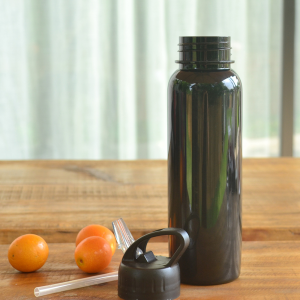1. Advantages of plastic water cups1. Lightweight and portable: Compared with water bottles made of glass, ceramics, stainless steel and other materials, the biggest advantage of plastic water bottles is its portability. People can easily put it into their bags and carry it with them, so it is widely used in outdoor, travel, sports and other occasions.
2. Easy to clean: The surface of the plastic water cup is smooth and not easy to be stained with dirt, making it easy and quick to wash. And because it is cheap, it can be used in public places, schools, hotels and other places that require a large number of spare drinking utensils, making it easy to use and clean.
3. Not easy to break: Plastic water cups have strong toughness and are not easy to break even if they are dropped from a high place. This is one of the reasons why they are widely used in children’s drinking utensils, student beverage bottles and other fields.
2. Disadvantages of plastic water cups
1. Easy to contaminate: Due to the material of the plastic water cup, it is easy to generate static electricity and it is difficult to avoid dust and bacteria adhering to it. Especially when used improperly, repeatedly or overheated, harmful substances will be produced, which will have an impact on human health.
2. Short lifespan: Plastic water bottles are easily affected by scratches, aging, deformation, etc., which can easily lead to a short lifespan of the product. Once a product becomes deformed or aged, it is easy to release harmful substances and is not suitable for reuse.
3. Environmentally unfriendly: Plastic water cups are non-degradable products, which will cause certain pollution to the environment. If it is not handled correctly or thrown away at will, it can easily cause serious harm to the natural environment.
3. The correct way to choose and use plastic water cups
1. Choose safe materials: Consumers can choose some plastic water bottles made of food-grade or PP materials. These materials are less likely to produce harmful substances and are safer.
2. Suitable usage scenarios: Avoid placing plastic water bottles in high temperature environments to prevent harmful substances from being released. In addition, for public places or places that require long-term use, water cups should be replaced in time to ensure your health.
3. Proper cleaning and maintenance: The surface of the plastic water cup is smooth, but it should be rinsed multiple times during cleaning to ensure the cleanliness of the inside of the water cup. In addition, do not use irritating cleaning agents such as alcohol, chlorine water, and high-temperature water to avoid damaging the material surface.
【in conclusion】
To sum up, although plastic water cups have the advantages of being portable and easy to clean, they also have disadvantages such as easy contamination and short lifespan. When correctly selecting and using plastic water cups, attention should be paid to the selection of materials, matching of use scenarios, cleaning and maintenance, etc., so as not to affect human health and the environment.
Post time: Jul-24-2024
